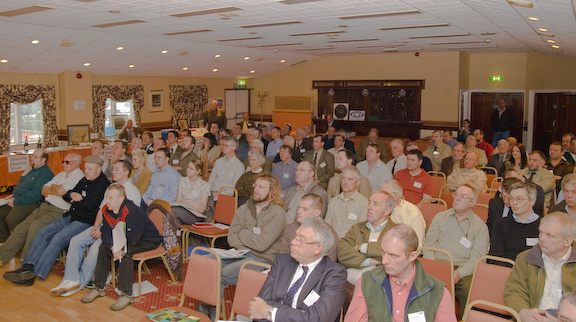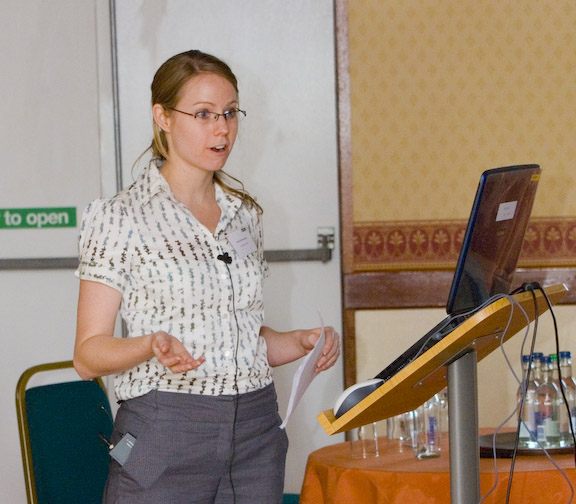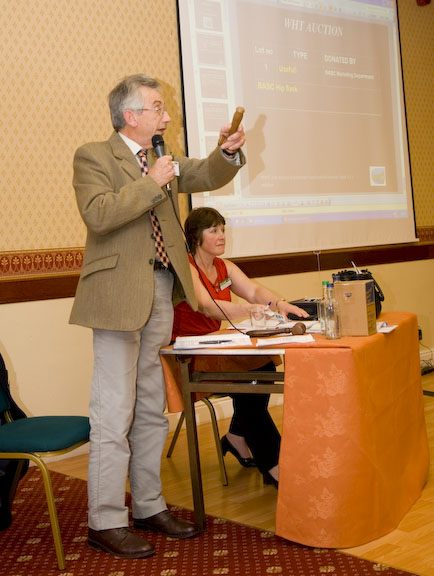The British
Association for Shooting and Conservation (BASC) held its 2007
Wildfowling Conference at Barnsdale Hall Hotel, Rutland, on 17th
March. The event was a sell-out and a larger venue will clearly be
required for the next event of this type. Wildfowlers from around
the UK enjoyed a varied programme which would be of greatest
interest to chairmen, secretaries and committee members of
wildfowling clubs in view of the not inconsiderable funding
opportunities presented by a number of speakers.
Ably chaired by
BASC Wildfowling Liaison Committee chairman Lee Freeston of the
Chichester Harbour Wildfowlers Association, the conference began
with an appraisal of Wildfowling in the 21st Century by John Swift,
the BASC Chief Executive, This gave an upbeat account of the
challenges facing the sport as it exploited its "deal" with the
public, improved its "contract" as represented by statute and
regulations at flyway, EU, UK and regional levels, developed its
"market" for space and examined its "governance" in terms of
structures, partnerships, skills and leadership.
This was followed
by an excellent examination of population trends and distributions
amongst waterbirds in the UK by Richard Hearn of the Wildfowl and
Wetlands Trust. Land use practices, site protection, hunting
pressure and climate change were all identified as possible factors
affecting population and distribution.
David Stroud of the
Joint Nature Conservation Committee explained how various data were
employed in decision making about SPAs and Natura 2000 sites. For
waterbirds the monitoring of site condition has been aided by the
development of the WeBS Alerts System which makes use of generalised
additive models to produce smoothed indices of abundance, and is
applied to assess trends on several spatial and temporal scales.

Part of the audience at the conference
The
issue of climate change was then addressed in greater detail by Mike
Harley of Natural England. Although many scientists would disagree
with his claims about human influence on the cyclical process of
climate change, the figures and predictions he presented did
indicate the prospect of substantial shifts in ecological balance as
the climate changes and the "climate space" required by some species
causes changes in distribution.
Coastal access is an issue that concerns many wildfowlers and the
presentation made by Bruce Cutts of Natural England set the scene
for the forthcoming public consultation that would be conducted in
England. It was clear, both from Bruce's talk and from questions and
comments from the audience, that there would be the possibility of
tensions between the government's desire to increase the access
opportunities for the public to the coastal environment and, on the
other hand wildlife conservation and wildfowling interests.

The morning ended with an open
discussion with questions to a panel of speakers
After
lunch there were two workshops on the matter of land purchases by
wildfowling clubs. In the first, Alan Jarrett of Kent Wildfowlers
and David Ilsley of BASC explored the question of finding land for
shooting while, in the other workshop Gary Edwards of the
Agricultural Mortgage Association explained the routes that
wildfowling clubs could take to raise finance for land purchase.
The
next session focussed on habitat creation with Paul Miller of the
Environment Agency explaining that the Habitat Programme had been
extended to include the Biodiversity Action Plan and that funding
was available to help landowners improve inter-tidal and freshwater
habitat. Using the example of the Blackwater Wildfowling
Association's project at Brandy Hole, it was shown how wildfowling
clubs could benefit through financial and technical support for
suitable projects and that ongoing financial support was also
available for site management through Natural England's Stewardship
Scheme.
The
final guest speaker of the day was Shannon Dolbel of The Crown
Estate who told delegates how finance could be provided to
wildfowling clubs for marine stewardship projects aimed at improving
the management of Crown foreshore leased by them.

Shannon Dolbel explains how wildfowling
clubs can get financial assistance from The Crown Estates
There
was then a session in which the trustees of the Wildlife Habitat
Trust sought views from the delegates about how the Trust might
operate more effectively, finishing with an auction conducted to
raise funds for the Trust.

Bill Notton encouraging bids at the
auction
|

